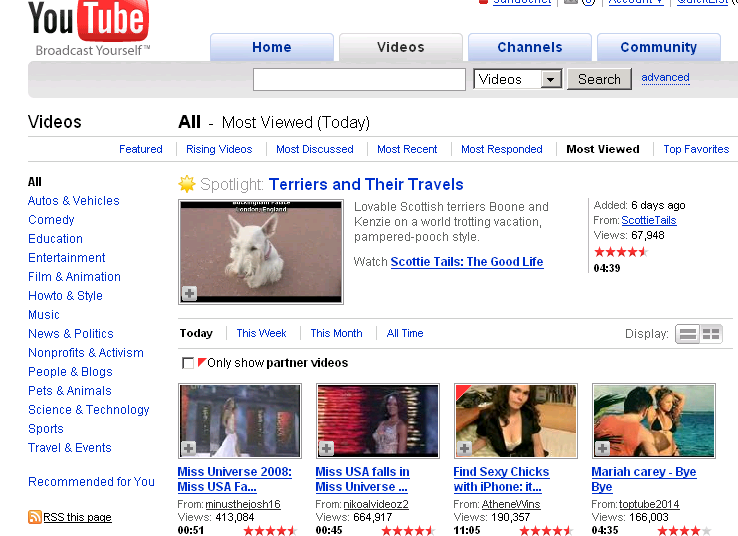YouTube's filters help copyright owners profit from pirated videos
Hollywood has long called for YouTube to help copyright owners scrub the site of unauthorized videos. Now, copyright owners are using the site's copyright filters to help generate ad revenue.

Instead of just pulling down pirated clips, copyright owners are choosing to use YouTube's copyright filters to generate advertising revenue, Google said Wednesday.
Late last year, Google introduced a copyright identification system called Video ID, which tracks unauthorized videos. It enables a copyright owner to either block the clip, leave it up, or enable YouTube to sell ads against the material.
Google said on its blog Wednesday that copyright owners were choosing to turn a buck from unauthorized clips 90 percent of the time.
"It's clear to our (more than 300) Video ID partners that our technology has created a framework that allows copyright holders to sanction the creativity of their biggest fans," Google said. "These partners now have a new way to successfully distribute and market their content online."
These statistics can obviously be used to counter arguments that YouTube costs copyright owners money. Viacom filed a $1 billion lawsuit against Google and YouTube for allegedly encouraging users to commit copyright infringement.
Google has always said that most of the smart media companies choose not to war with YouTube. They are clasping hands with the Web's No.1 video-sharing site and using it to promote shows and generate ad revenue.
But here's the juiciest part of this story. Profiting from pirated videos can shove copyright owners smack into a moral dilemma. A source at a large media company told me recently that executives there were debating that exact question. Several start-ups are working on technology that will track unauthorized videos wherever they exist on the Web and then insert an advertisement into the clips.
I just got off the phone with Fred von Lohmann at the Electronic Frontier Foundation, who chuckled when he heard about the debate.
"The second (big media companies) say yes to profiting from those clips this way, it will make it hard for them to argue that ISPs should be forced to screen for unauthorized material. It's hard to make that argument when you're re being compensated."
The EFF's von Lohman also brought up another interesting scenario. If someone uses, say for example, a piece of Prince's music to criticize the musician--which would fall under fair use--von Lohmann wonders whether Prince would be paid for such a use?
"There would be a question about whether that would be appropriate," von Lohmann said.

